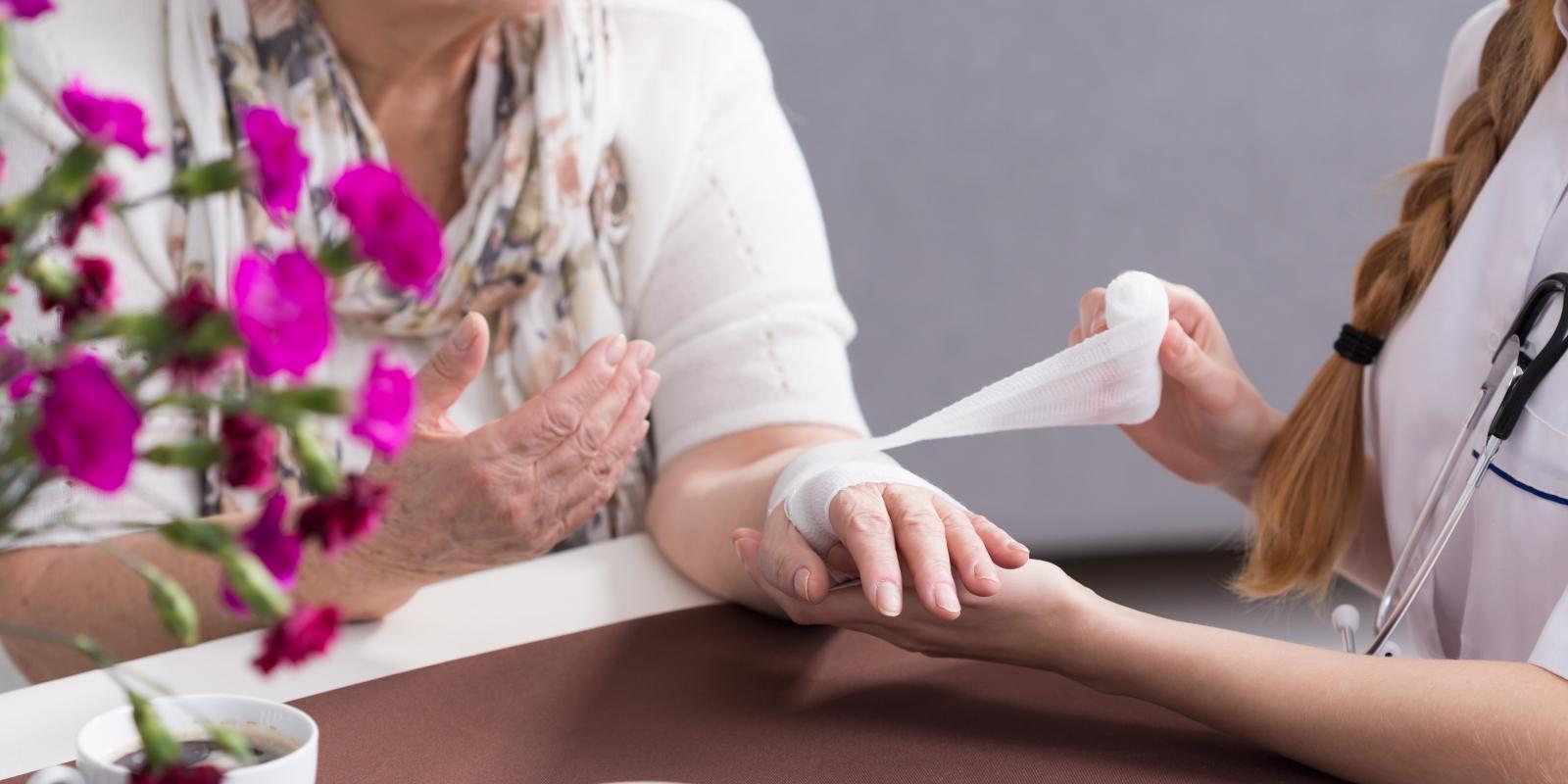Wounds or wound-related infections affect nearly 15% of older adults, making effective treatment of chronic wounds an important aspect of healthy aging. Wounds can negatively impact individuals’ quality of life by reducing their mobility and preventing participation in favorite activities. Wounds also increase risk of infection and other complications, including loss of limbs.
Recent research offers new insights regarding the role good nutrition, including certain key nutrients, can play in wound healing. Many of the nutrients that support wound healing are part of a normal, healthy diet, but sometimes a normal diet is not sufficient for the wound-healing process to progress. In such cases, supplementation with key nutrients can help better support the wound-healing process:
- Arginine: an amino acid that regulates metabolic and physiologic functions supporting wound healing and tissue repair. It is a building block for proteins and helps improve the flow of blood and oxygen to a wound, supporting healing.
- Glutamine: an amino acid that provides fuel to the cells supporting the immune system (i.e., lymphocytes and macrophages) and helps stimulate growth of new tissue for wound healing.
- HMB: also known as β-hydroxy-β-methylbutyrate, it helps the body produce new tissue by slowing down muscle breakdown and stabilizing muscle cell membranes.
A recent study, published in the International Wound Journal, assessed the impact of a specialized nutrition product on the wound healing of patients staying in a rehabilitation hospital for two or more weeks. The study tested the specialized nutrition product effects on a variety of wounds, including pressure injuries and surgical wounds.
Despite their poorer condition, patients who received specialized nutrition products had more favorable outcomes than those who did not.
As part of the standard care, patients were screened for risk of compromised skin integrity. Any wounds that were identified were assessed by a certified Wound Care Nurse and activated the hospital’s wound treatment protocol in which individualized clinical recommendations were developed and implemented. Some patients were recommended twice daily use of a wound-specific oral nutrition supplement (WS-ONS) containing arginine, glutamine and HMB.
Comparing patients who received WS-ONS with those who did not documents those who received WS-ONS had more wounds that were, on average, larger, had higher levels of disability, and had greater severity of illness. Yet, despite their poorer condition, patients who received WS-ONS had more favorable outcomes compared to patients who did not receive WS-ONS including:
- greater percentage reduction in the size of their wounds at discharge,
- more likely to have a reduction in wound size in the first two weeks of their stay.
This research supports the importance of nutrition and specialized nutrients in the wound healing process, as has been found in other studies. Additionally, recent guidance from the American Limb Preservation Society states that therapeutic nutrition supplements can support wound healing.
To raise awareness for wound healing and recognize the challenges experienced by those affected daily by chronic wounds, the American Board of Wound Management Foundation named June Wound Healing Awareness Month (WHAM!).
The Centers for Medicare & Medicaid Services (CMS) also have emphasized wound care, establishing quality programs and metrics related to wound care for acute, post-acute, home and clinic-based care settings. Identifying best practices and key nutrients for wound healing based on research and clinical experience is key to improving care for individuals with chronic wounds.
Kirk W. Kerr, PhD, is senior manager Health Economics, at Abbott Nutrition, a division of Abbott Laboratories.
Photo credit: Photographee.eu; Shutterstock













